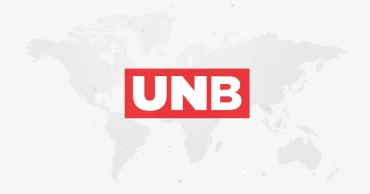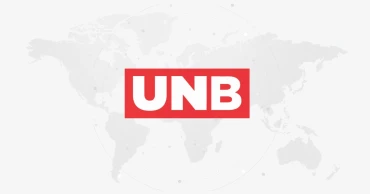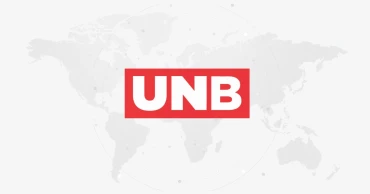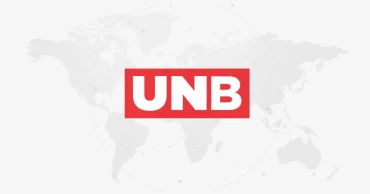Indian PM
Indian PM scraps three contentious farm laws
Indian Prime Minister Narendra Modi Friday announced the scrapping of three contentious agricultural laws, apparently buckling under year-long farmer protests ahead of assembly polls in two states.
Tens of thousands of farmers have been camping on the outskirts of the national capital in protest against three controversial agricultural laws that they fear could hurt their livelihoods.
"Today I have come to tell you, the whole country, that we have decided to withdraw all three agricultural laws,” Modi said in an address to the nation in the morning.
Also read: Indian farmers intensify their protests against agri reforms
"In the Parliament session starting later this month, we will complete the constitutional process to repeal these three agricultural laws," he said, urging the protesting farmers to return to their homes and fields.
The Indian Prime Minister said that his government did its best to educate the farmers of this country about the benefits of the three agricultural laws but failed to achieve the desired results.
"We haven't been able to explain to our farmers. This is not a time to blame anyone. I want to tell you that we have taken the farm laws back," Modi added.
The government's decision comes on the occassion of Guru Nanak Jayanti, which celebrates the birth of the founder of Sikhism, Guru Nanak. It's the most important festival of the minority Sikh community, who are primarily farmers and inhabitants of Punjab in northern India.
While some farmer bodies welcomed the move, others kept mum. "It's a good move by PM Narendra Modi on the occasion of Guru Purab," Joginder Singh Ugrahan, a prominent leader of a faction of the Bharatiyan Kisan Union, told the media.
India's opposition parties took to Twitter to react to the development.
"The country's farmers have defeated arrogance with their satyagraha. Jai Hindi, Jai Hindi's farmers," the country's main opposition Congress leader Rahul Gandhi tweeted. His party is a fierce critic of the three "anti-farmer" agricultural laws.
Delhi Chief Minister Arvind Kejriwal also tweeted, "Great news on Prakash Divas. Over 700 farmers lost their lives. Their sacrifice will live on. Future generations will remember how farmers gave their all for the cause of farmers. Salute India's farmers."
The three farm laws were brought in by the Indian government in September 2020 triggering fierce protests, particularly in the three northern Indian states of Punjab, Haryana and Uttar Pradesh. Punjab and Uttar Pradesh are set to go to polls soon.
Also read: Indian farmers march seeking better prices for produce
While the Indian government had said that the reforms would help farmers get better prices by allowing them to sell their produce at markets and prices of their choice, the protesters feared the laws would hurt their interests by paving the way for the entry of private players into the agricultural market.
Experts said the three farm laws were revoked by the government in the wake of fierce protests that the top ruling Bharatiya Janata Party leaders had been facing during election campaign in Punjab and UP.
"It is said that the road to Delhi passes through Lucknow, the capital of Uttar Pradesh. And the party that wins the majority of seats in assembly polls in the state stands a fair chance to form the federal government," Prof RK Sinha, a retired Delhi University professor, had earlier said.
The three farm laws are
1. Ending the monopoly of government-regulated markets and allowing farmers to sell their produce directly to private players
2. Ensuring a legal framework for farmers to enter into written pacts with companies and produce for them
3. Allowing agri-businesses to stock food articles and removing the government's ability to impose restrictions arbitrarily
4 years ago
Sheikh Hasina gifts 2,600kg mangoes to PM Modi, Mamata Banerjee
Prime Minister Sheikh Hasina Sunday sent 2,600kg of mangoes as a gift for her counterpart Narendra Modi and West Bengal Chief Minister Mamata Banerjee.
Indian President Ram Nath Kovind and other political leaders will also receive the mangoes.
The mangoes were sent through Jashore's Benapole land port.
The shipment arrived at the Benapole-Petrapole check post in the afternoon.
Also read: Humanity will overcome pandemic soon: Modi writes to Hasina
After the completion of customs and port formalities, the Bangladeshi trucks carrying 260 cartons of mangoes crossed the border.
4 years ago
‘No place for you’: Indian hospitals buckle amid virus surge
Seema Gandotra, sick with the coronavirus, gasped for breath in an ambulance for 10 hours, as it tried unsuccessfully at six hospitals in India’s sprawling capital to find an open bed. By the time she was admitted, it was too late, and the 51-year-old died hours later.
Rajiv Tiwari, whose oxygen levels began falling after he tested positive for the virus, has the opposite problem: He identified an open bed, but the 30-something resident of Lucknow in Uttar Pradesh can’t get to it. “There is no ambulance to take me to hospital,” he said.
Such tragedies are familiar from surges in other parts of the world — but were largely unknown in India, which was able to prevent a collapse in its health system last year through a harsh lockdown. But now they are everyday occurrences in the vast country, which is seeing its largest surge of the pandemic so far and watching its chronically underfunded health system crumble.
Tests are delayed. Medical oxygen is scarce. Hospitals are understaffed and overflowing. Intensive care units are full. Nearly all ventilators are in use, and the dead are piling up at crematoriums and graveyards. India recorded over 250,000 new infections and over 1,700 deaths in the past 24 hours alone, and the U.K. announced a travel ban on most visitors from the country this week. Overall, India has reported more than 15 million cases and some 180,000 deaths — and experts say these numbers are likely an undercounts.
India’s wave of cases is contributing to a worldwide rise in infections as many places experience deepening crises, such as Brazil and France, spurred in part by new, more contagious variants, including one first detected in India. More than a year into the pandemic, global deaths have passed 3 million and are climbing again, running at nearly 12,000 per day on average. At the same time, vaccination campaigns have seen setbacks in many places — and India’s surge has only exacerbated that: The country is a major vaccine producer but was forced it to delay deliveries of shots to focus on its domestic demand.
Also read: Indian capital gasps for oxygen
Bhramar Mukherjee, a biostatistician at the University of Michigan who has been tracking India’s pandemic, said India failed to learn from surges elsewhere and take anticipatory measures.
When new infections started dipping in September, authorities thought the worst of the pandemic was over. Health Minister Harsh Vardhan even declared in March that the country had entered the “endgame” — but he was already behind the curve: Average weekly cases in Maharashtra state, home to the financial capital of Mumbai, had tripled in the previous month.
Mukherjee was among those who had urged authorities to take advantage of cases being low earlier in the year to speed up vaccinations. Instead officials dithered in limiting huge gatherings during Hindu festivals and refused to delay ongoing elections in the eastern West Bengal state, where experts fear that large, unmasked crowds at rallies will fuel the spread of the virus.
Now India’s two largest cities have imposed strict lockdowns, the pain of which will fall inordinately on the poor. Many have already left major cities, fearing a repeat of last year, when an abrupt lockdown forced many migrant workers to walk to their home villages or risk starvation.
New Delhi, the capital, is rushing to convert schools into hospitals. Field hospitals in hard-hit cities that had been abandoned are being resuscitated. India is trying to import oxygen and has started to divert oxygen supplies from industry to the health system.
Also read: India's capital to lock down as nation's virus cases top 15M
It remains to be seen whether these frantic efforts will be enough. New Delhi’s government-run Sanjay Gandhi Hospital is increasing its beds for COVID-19 patients from 46 to 160. But R. Meneka, the official coordinating the COVID-19 response at the hospital, said he wasn’t sure if the facility had the capacity to provide oxygen to that many beds.
The government-run hospital at Burari, an industrial hub in the capitals’ outskirts, only had oxygen for two days Monday, and found that most vendors in the city had run out, said Ramesh Verma, who coordinates the COVID-19 response there.
“Every minute, we keep getting hundreds of calls for beds,” he said.
Kamla Devi, a 71-year-old diabetic, was rushed to a hospital in New Delhi when her blood sugar levels fell last week. On returning home, her levels plummeted again but this time, there were no beds. She died before she could be tested for the virus. “If you have corona(virus) or if you don’t, it doesn’t matter. The hospitals have no place for you,” said Dharmendra Kumar, her son.
Laboratories were unprepared for the steep rise in demand for testing that came with the current surge, and everyone was “caught with their pants down,” said A. Velumani, the chairman and managing director of Thyrocare, one of India’s largest private testing labs. He said that the current demand was three times that of last year.
Also read: India records over 260,000 daily COVID-19 cases, tally at 14,788,109
India’s massive vaccination drive is also struggling. Several states have flagged shortages, although the federal government has claimed there are enough stocks.
India said last week that it would allow the use of all COVID-19 shots that had been greenlit by the World Health Organization or regulators in the United States, Europe, Britain or Japan. On Monday, it said that it would soon expand vaccinations to include every adult in the country, an estimated 900 million people. But with vaccine in short global supply, it isn’t clear when Indian vaccine makers will have the capacity to meet these goals. Indian vaccine maker Bharat Biotech said it was scaling up to make 700 million doses each year.
Meanwhile, Shahid Malik, who works at a small supplier of oxygen, said that the demand for medical oxygen had increased by a factor of 10. His phone has been ringing continuously for two days. By Monday, the shop still had oxygen but no cylinders.
He answered each call with the same message: “If you have your own cylinder, come pick up the oxygen. If you don’t, we can’t help you.”
4 years ago
Indian capital gasps for oxygen
Believe it or not, rising Covid-19 cases have left the Indian capital's medical infrastructure on the brink of collapse. Several hospitals in the city are left with just a few hours of oxygen, the Chief Minister of Delhi said on Tuesday, prompting the High Court to slam the federal government for not banning the industrial use of the life-supporting gas immediately.
On Tuesday, India reported as many as 259,170 Covid-19 cases and 1,761 fatalities in the past 24 hours, the highest daily death toll since the pandemic broke out over a year ago. The national capital alone reported over 30,000 new Covid cases and some 250 deaths.
Also read: India's capital to lock down as nation's virus cases top 15M
"Serious oxygen crisis persists in Delhi. I again urge the Centre (federal government) to urgently provide oxygen to Delhi. Some hospitals are left with just a few hours of oxygen," Chief Minister Arvind Kejriwal tweeted, after a number of leading private hospitals claimed that their oxygen supplies will last for a maximum of 8-12 hours.
Local TV channels also beamed footage of hundreds of Delhi residents queuing up in hospitals, begging for beds for their loved ones with Covid-19 positive reports.
Also read: India records over 260,000 daily COVID-19 cases, tally at 14,788,109
Taking cognizance of the media reports and Kejriwal's tweets, the Delhi High Court also came down heavily on the federal government and questioned its decision to implement a ban on the industrial use of oxygen for Covid patients only from April 22. "Economic interests can't override human lives. Else we are heading for a disaster," the court said.
"Out of 130 crore, there are less than two crore official cases. Even if it's five times, that means only 10 crore cases. We should protect the remaining people. At this rate, we might lose one crore people. We should act fast. We are not here to run the government but you have to be sensitive to the situation," a two-judge bench said.
Also read: Covid-19: Global cases near 142 million, deaths top 3 million
UNB had earlier reported that the Covid-19 pandemic has suddenly turned India into a Covid vaccine importer from a mass exporter. And the government has turned to foreign vaccine producers for inoculating the citizens. The Sputnik vaccine from Russia, officials had said, would arrive next month.
Indian Prime Minister Narendra Modi rolled out the world's largest Covid inoculation programme on January 16. Two 'Made in India' jabs, one developed by the Serum Institute in collaboration with AstraZeneca, and the other by Bharat Biotech, are being given.
4 years ago
Modi thanks Momen for "excellent arrangements" during his recent visit
Indian Prime Minister Narendra Modi has thanked Foreign Minister Dr AK Abdul Momen for the "excellent arrangements" made during his recent State Visit to Bangladesh.
Prime Minister Modi also congratulated the Bangladesh government for flawless arrangement of the spectacular celebrations on March 26 to mark 50 years of Bangladesh's Independence as well as the birth centenary of Father of the Nation Bangabandhu Sheikh Mujibur Rahman.
Also Read: Modi visits Tungipara; pays homage to Bangabandhu
"I write to convey my thanks for the excellent arrangements made during my recent State Visit to Bangladesh. It was a pleasure to exchange thoughts with you during the visit," Modi said in his recent letter to Dr Momen.
Also Read: Bangladesh, India for progress of whole world: Modi
During the visit, Bangladesh and India agreed to accelerate the momentum that exists between the two countries with an eye on next 50 years of cooperation in diversified areas.
The two countries also laid emphasis on having enhanced connectivity, not just between Bangladesh and India but beyond the two countries to ensure broader economic benefits.
4 years ago
Clashes in Brahmanbaria leave five dead
At least five people were killed and around 50 others, including 25 police members, injured in clashes between law enforcers and locals during demonstrations at Nandanpur in Sadar upazila on Saturday.
They staged the demonstrations against Indian Prime Minister Narendra Modi’s visit to Bangladesh and chanted various slogans against his visit.
Police and witnesses said a group of activists of Hefazat-e-Islam took position on Dhaka-Sylheht Highway in Nandanpur area in the afternoon and started demonstrating right there against Modi’s visit and the killing of people in Brahmanbaria and Chittagong on Friday.
Also read: Four killed in clashes with cops in Chattogram
The clash began as the members of police and Border Guard Bangladesh (BGB) tried to disperse them.
Hearing the news of the clash, local people also joined the demonstrations and attacked the law enforcers, forcing them to fire several rounds of bullet, leaving many people injured.
Also read: Protest against Modi’s visit: 50 injured as Muslim devotees, cops clash in Dhaka
Scores of injured people were taken to Brahmanbaria Sadar Hospital, said Rana Nurus Shams, resident medical officer (RMO) of the hospital.
He said they have so far declared five of the injured dead.
Also read: Modi visit: Protesters clash with cops at Motijheel; 20 injured
Four of the dead were identified as a workshop owner Juru Alam, 35, day-labourers Badal Mia, 24, Sujon Mia, 22, and plumber Kausar, 25.
The identity of another dead could not be known yet.
4 years ago
Bangladesh set to celebrate Independence Day Friday
Bangladesh, a newly-emerged developing nation, is all set to celebrate its 50th Independence Day on Friday with remarkable socio-economic progress.
This year’s Independence Day bears more significance as the country is celebrating the Golden Jubilee of Independence alongside the birth centenary celebration of Father of Nation Bangabandhu Sheikh Mujibur Rahman.
A 10-day special programme marking the 50 years of independence and the birth centenary of Father of Nation Bangabandhu Sheikh Mujibur Rahman that started on March 17 at the National Parade Square will end on Friday.
Indian Prime Minister Modi will join the celebrations.
Also read: Covid-19: Bangladesh records 3-month high 34 deaths; 3,587 fresh cases
Maldives President Ibrahim Mohamed Solih, Nepalese President Bidya Devi Bhandari, Sri Lankan Prime Minister Mahinda Rajapaksa and Bhutanese Prime Minister Dr Lotay Tshering also attended the 10-day special programme in person.
Many global leaders, including Queen Elizabeth II, Pope Francis, Chinese President Xi Jinping, German President Frank-Walter Steinmeier, Canadian Prime Minister Justin Trudeau and Unesco Director General Audrey Azoulay sent messages, marking the celebrations.
On March 26, 1971, Father of the Nation Bangabandhu Sheikh Mujibur Rahman declared Bangladesh's independence following the crackdown on unarmed Bangalees on the midnight of March 25 by Pakistani occupation forces.
After a nine-month War of Liberation with the supreme sacrifices of three million people and the honour of 200,000 women, Bangladesh finally achieved its independence on December 16, 1971.
Also read: With focus on taking ties to a new height, Modi arrives Friday
The day will begin with a 50 gun-salute which is a public holiday.
President Abdul Hamid and Prime Minister Sheikh Hasina issued separate messages extending heartfelt greetings and warm felicitations to the people of the country at home and abroad.
President Abdul Hamid, in his message, said, “On the eve of 'Mujib Barsho' and the Golden Jubilee of our Independence, with the joint efforts of all, may our beloved motherland become a developed country free from hunger and poverty -- this is my expectation on the great Independence Day.”
Prime Minister Sheikh Hasina, in her message, said, “The independence earned through the supreme sacrifices of millions of people is the greatest achievement of Bangalee Nation. To ensure that the achievement remains meaningful, all have to know the true history of our great Liberation War and respect the spirit of independence. The spirit of the Liberation War has to be propagated from generations to generations.”
Also read: Bangladesh celebrates Independence Day with caution
“Let’s vow on this auspicious occasion of the Golden Jubilee of independence- imbued with the spirit of the Great War of Liberation, we all together will build hunger- poverty- and illiteracy-free Golden Bangladesh as dreamt by Father of the Nation Bangabandhu Sheikh Mujibur Rahman,” she added.
National dailies will bring out special supplements while Bangladesh Betar, Bangladesh Television, private radio stations and television channels are airing special programmes highlighting the significance of the day.
4 years ago
Anti-Modi protest: Chhatra Odhikar Parishad burns Indian PM's effigy
Bangladesh Chhatra Odhikar Parishad Wednesday burned Indian Prime Minister Narendra Modi's effigy at Dhaka University campus protesting his upcoming visit to join the 50th anniversary of Bangladesh's Independence.
The student body brought out a black flag procession from the Central Shaheed Minar at around 4:30pm and paraded different roads of the campus. The procession ended at the TSC area.
Speaking at the rally, leaders and activists of the organisation labelled Modi as a "communal terrorist" and said a "terrorist" cannot join Bangladesh's Golden Jubilee celebration.
They also protested Tuesday's attack that Bangladesh Chhatra League (BCL) men carried out on anti-Modi protesters at the campus and demanded immediate arrest of the attackers.
Also read: 25 injured as BCL swoop on anti-Modi protesters
Chhatra Odhikar Parishad DU unit General Secretary Akram Hossain led the protest programme.
Bin Yeamin Molla, former Chhatra Odhikar Parishad Dhaka University unit president, said: "India helped us during our Liberation War of 1971. We are grateful to them but we cannot welcome a 'terrorist' like Modi in our great Golden Jubilee celebration."
"We cannot welcome a communal individual like him and will resist him by any means."
Calling on the BCL to stop violence, Yeamin said, "If you do not put an end to using force, students will not accept you anymore."
Also read: Will resist anti-Modi protesters: DU BCL president
Akhter Hossain, DU unit president of the organisation and also former Dhaka University Central Students' Union leader said, "The people of Bangladeshi do not want Modi here. But the ruling party Awami League is desperate to have him in our Golden Jubilee celebration to cling on to state power."
"India is not behaving like a friendly country to us. Bangladesh citizens are being killed every day on the border. India has power and influence over us everywhere."
On Tuesday, at least 20 anti-Modi protesters from different left-leaning student bodies and five photojournalists got injured as some BCL men swooped down on a rally that was protesting Modi's visit to Bangladesh ahead of March 26.
4 years ago
Delhi to bolster defence ties with Dhaka during Modi's visit
India and Bangladesh will strengthen bilateral defence and security ties and are also likely to ink a number of pacts during Prime Minister Narendra Modi's two-day state visit to Dhaka, the Foreign Ministry said Wednesday.
Modi will visit Bangladesh on March 26-27 to attend the golden jubilee celebrations of the country's independence and the birth centenary of Bangabandhu Sheikh Mujibur Rahman. The Indian PM is also slated to visit Gopalganj’s Tungipara area, Bangabandhu's birthplace.
“Both sides will be signing a range of agreements during Modi's visit. These agreements will be covering a number of areas of our cooperation -- disaster management, oceanography and trade," Indian Foreign Secretary Harsh Vardhan Shringla told the media in New Delhi.
Also read: Modi due Friday as main attraction of 10-Day celebration
"A number of new announcements -- bolstering cooperation in areas ranging from health, railway connectivity, border development and start-ups -- are also expected to be made," he added.
Talks on bolstering defence and security cooperation between the two countries are also on the agenda of Modi's meeting with Bangladesh Prime Minister Sheikh Hasina, according to the top Indian diplomat.
Also read: Bangabandhu's vision lights Dhaka-Delhi friendship: Modi
"Security and defence is an important part of our cooperation with Bangladesh. We have in recent years signed an agreement on defence cooperation with Bangladesh and undertaken joint military, training and capacity building exercises on a regular basis," Shringla said.
"It is a regular practice for chiefs of our armed forces to visit Bangladesh. We have excellent defence cooperation between our countries. As we go along, we will continue to add more and more depth and momentum to that relationship,” the Indian Foreign Secretary added.
Also read: Modi's visit to highlight priority attached to Bangladesh: South Block
On bilateral relations, Shringla said, "Ties between the two countries have no parallel. Indian soldiers had fought and were killed alongside Bangladeshis for independence."
India and Bangladesh share a 4,096-kilometre-long international border, the fifth-longest land border in the world. Both countries also share historical, civilisation and cultural ties.
4 years ago
Indian PM gets his first COVID-19 vaccine dose as country begins phase-2 of vaccination drive
Indian Prime Minister Narendra Modi took his first dose of COVID-19 vaccine, Covaxin, on Monday.
5 years ago













